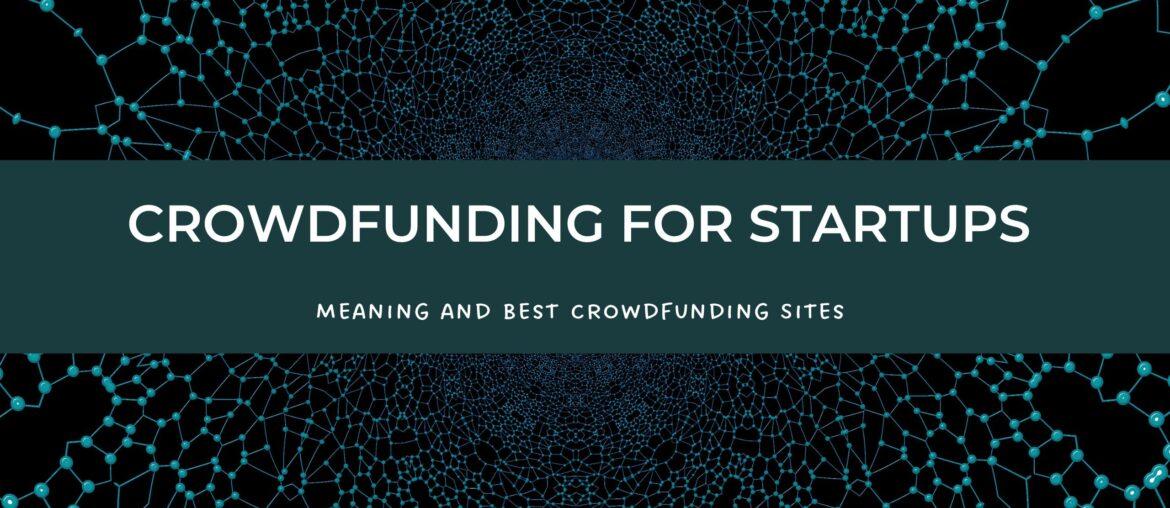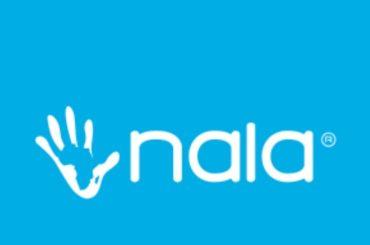You have decided to launch a business startup but need money or still need more funds for your startup, check out crowdfunding for startups. With this, you are prepared to make those millions. Thanks to the incredible potential of your startup idea.
Crowdfunding for startups allows you to get investors or the money to fund your business/startup by appealing to the masses. You can check other sources of startup financing unless you know some wealthy angel investors or venture capitalists.
As the name implies, crowdfunding is the process of raising money for a business or project from a large group of people. So, rather than obtaining funding from one or two significant sources, small firms now turn to a bigger pool of possible investors to help them get the money they require to grow.
However, that capital is not always given away. Investors anticipate receiving something in return for their money, and what exactly that “something” is will depend on the form of crowdfunding a small business chooses to employ to generate money.
Are you ready to start crowdfunding?
The Best Crowdfunding Sites for Startups
Crowdfunding websites link your startup to eager funders and investors; we have listed the top websites for business fundraising.
| Website | Explanations |
| Kickstarter | Best overall crowdfunding site |
| iFundWomen | Best for women entrepreneurs |
| GoFundMe | Best for charitable causes |
| Wefunder | Best equity crowdfunding |
| Fundable | Best flat fee option. |
1. Kick starter: Best overall crowdfunding platform
With almost a decade of experience in crowdfunding, Kickstarter is probably the most well-known site out there. And for good reason, too!
But first, the bad news: it’s challenging to complete a profitable crowdfunding campaign on Kickstarter. It’s a platform that is fiercely competitive and selective about which crowdsourcing projects it will accept.
Additionally, to receive funding on Kickstarter, your project must “produce something to share with others.” Also, your project must fit into one of Kickstarter’s carefully chosen categories, such as gaming, fashion and design, film and photography, crafts, fashion, and technology.
Nevertheless, if you want to present your big idea to the broadest audience possible, Kickstarter is worth a try. The platform has a base of over 6 billion project benefactors worldwide.
Read – 11 Grants for Startups.
Strengths
- Campaigns approved from six countries
- Over 20 million people have donated to campaigns globally.
- 3% payment fees
Weaknesses
- The tough campaign acceptance process
- One-in-three campaign success rate
- All-or-nothing funding
2. iFundWomen: Ideal for female business owners
You can probably tell from the name iFundWomen what this crowdfunding platform is all about (though men can also raise money on the platform).
The online platform for crowdfunding was developed by the founders to serve as a “fundraising ecosystem for women-led startups and small companies.” For startup entrepreneurs, it also offers coaching, marketing, and other services.
The “iFundWomen Method” of crowdfunding is taught for free by iFundWomen. The site claims that companies using this strategy raise 27 times more money than the national average. 3 Because of this, iFundWomen’s mentoring is quite beneficial.
Campaigners are allowed to keep whatever money they generate on iFundWomen, unlike certain reward-based crowdfunding platforms. Additionally, 20% of the funding fees the website receives is used to promote initiatives and services for women company owners.
Read – Business Planning For Startups.
Strengths
- A flexible keep-what-you-raise financing strategy
- commitment to reinvesting in the community of women-owned businesses
- Additional services include business coaching, video production, and exclusive forums
Weaknesses
- Access is only available to campaigners in 23 countries.
- Limited data on customer satisfaction and success rates.
3. GoFundMe: Ideal for charitable causes
GoFundMe is a well-known crowdfunding website that enables users to donate to organizations and causes that are important to them.
GoFundMe isn’t the greatest crowdfunding site for every startup, but if you work with people or animals who need help due to sickness, unforeseen circumstances, or other challenges, you should give it some thought.
Two of GoFundMe’s main advantages are the choice to keep all of the funds raised and the lack of financing costs for US-based personal projects.
Just keep in mind that because of the site’s enormous popularity, GoFundMe campaigns are said to have a low success rate, so you will need to work very hard to get people to learn about—and support—your initiative.
Strengths
- Concentrates on charitable causes that benefit people
- For US-based personal causes, there are no funding fees.
- Keep-what-you-raise funding strategy
Weaknesses
- There are few possibilities for conventional startups.
- One in ten campaigns that receive full funding is successful.
4. Wefunder: The best equity crowdfunding platform
Although there are other equity crowdfunding websites, Wefunder is our favourite. We list a number of them here.
That’s in part because Wefunder, although not particularly exclusive, has a great success rate (about 75%).
It’s also because Wefunder provides businesses that use it to crowdfund with a tonne of resources and assistance, including coaching, assistance with legal filings, and even investor relations
Read – Scientific Grant Writing Tips for Startups.
Legal Requirements of Wefunder
Compared to other forms of crowdsourcing, equity crowdfunding with authorised investors has greater regulatory requirements. Many of these criteria should be easier for you to manage thanks to equity crowdfunding platforms, but you should still check with your state to make sure there aren’t any additional requirements at the state level.
Wefunder now works best for startups who anticipate future funding from venture capitalists for their initiatives. It’s not for small companies that want to expand.
Wefunder also has a lot more restrictions and regulations than many other crowdfunding sites because it works with equity crowdfunding. Wefunder’s equity-based platform, however, can offer a great option to finance your firm if none of it troubles you.
Strengths
- High campaign success rate
- There is no exclusivity
- Resources for startups
Weaknesses
- There are several legal requirements and rules.
- Required financial disclosures
5. Fundable: The ideal flat-fee choice
Whether they are equity-based or reward-based, the majority of crowdfunding services take a cut of the money you raise. But Fundable follows a different strategy. There is a fixed monthly subscription fee.
As long as you’re a subscriber, you can make fundraising campaigns (though Fundable will have to manually approve your campaign after verifying it meets its terms and conditions).
Many prosperous crowdfunding campaigns benefit greatly from Fundable’s flat fee. For instance, if your target is only $3,580, the cost will be roughly 5% of the total amount raised (comparable to other platforms). However, the charge drops to less than 2% once you reach $10,000.
The only difficulty? Whether you are successful or not, you must pay the charge. The money you raise (if you run an equity campaign) is at least yours to retain.
Fundable is great for startups with a lot of confidence in their concepts and a desire to conduct an equity campaign because a failing campaign will cost you money.
Additionally, Fundable provides consulting services if you’d need a little additional assistance with your campaign. Everything from designing assets to marketing your campaign will be done by it.
The price of these advising services is higher than Fundable’s monthly fee, but you’ll need to get in touch with Fundable to find out how much more it will cost your startup.
Strengths
- The low, flat monthly charge for fundraising
- Great customer service
- It has a Consulting service to assist startups in producing effective campaigns
Weaknesses
- Punitive flat fee for unsuccessful fundraisers
- No automatic methods of unsubscribing
Choosing the Best Forms of Startup Crowdfunding
You can connect with investors and other people wanting to help small business owners launch their products and services on crowdfunding portals designed to resemble social networking sites.
However, not every crowdfunding site is the same. The four primary forms of startup crowdfunding are:
- Rewards Crowdfunding
- Equity crowdfunding
- Donation Crowdfunding
- Donation Crowdfunding
1. Rewards Crowdfunding
You establish a campaign for your startup, and then individual donors give money to it (often in small amounts) in exchange for a reward.
A preorder of your goods, a shout-out on a website, or even a T-shirt might be the reward.
2. Equity crowdfunding
The platform connects you to investors who are ready to make larger donations in exchange for a stake in your company.
This is why equity crowdfunding is well-liked by startups. That might entail treating your contributors like minor shareholders, along with all the responsibilities for reporting.
3. Donation Crowdfunding
Non-profit organizations and small regional companies are big fans of donation crowdsourcing.
It’s straightforward: Investors give money to businesses they support, and those businesses accept the money with no expectation of returning it.
4. Debt Crowdfunding
Debt crowdfunding follows a similar format to conventional small business loans, with the exception that the company borrows funds from customers or small groups of investors rather than a bank or lending institution.
Debt crowdfunding typically has terms that are similar to those of a conventional business loan, such as a predetermined annual percentage rate and laid out the payment schedule.
Although some offer both, most crowdfunding services concentrate on one of these. Additionally, although some crowdfunding platforms let you keep whatever money you raise, others only let you keep the money if your campaign is a complete success (often known as “all-or-nothing campaigns”)
Other forms of crowdfunding that don’t cleanly fit into the reward or equity categories are offered on some websites. For instance, many GoFundMe campaigns operate more like donations to charities. Additionally, creators like writers and artists can use Patreon to establish a consistent stream of revenue. The size, the objectives, and the quantity of startup finance required will determine the best kind of crowdfunding campaign for your firm.
Equity-based campaigns that accept crowdfunding investments are frequently a preferable option if you want large sums of money.
On the other hand, reward-based crowdfunding can be the greatest option if you believe you’ll be better served by combining thousands of little donations.
Best Practices for Business Crowdfunding
Let’s move on to how to use crowdfunding for your business. You should bear in mind a few excellent practices while using crowdfunding to raise money for your company;
- Use the Best Crowdfunding Websites
- Develop a Strategic Plan to Attract Investors’ Interest
- Keep Your Investors Informed
- Never attempt to bite more than you can chew
1. Use the Best Crowdfunding Websites
Not every crowdfunding website is made equally. For instance, some are created as platforms for fundraising and are best suited for generating donations, while others are exclusively for equity crowdfunding.
Still, others are created to create successful campaigns around the introduction of new products. Make sure to investigate the many crowdfunding platforms available before starting a project and pick the one that best suits your requirements and business goals.
2. Develop a Strategic Plan to Attract Investors’ Interest
Since crowdfunding has become so well-known in recent years, more small businesses than ever are using these platforms to generate capital.
Therefore, be careful to spend time defining your approach before beginning a crowdfunding campaign. This includes the kind of investors you want to attract, how you will market your crowdfunding campaign to attract those investors, and how you will persuade potential investors that your company is one they should invest in.
3. Keep Your Investors Informed
When investing traditionally, your business might have one or two investors who have a sizable sum invested in it. With crowdfunding, you may have hundreds (or even thousands!) of individual backers contributing small sums, depending on the type of campaign you’re conducting.
However, this does not imply that they are any less entitled to learn about the progress of their investment or less interested in it.
Keep your supporters updated on the status of your project or business through regular communication. For instance, if you’re using rewards crowdfunding to create and release a new product, be sure to give your investors regular updates on how the product development is progressing (including photo and video updates) as well as the most recent information regarding when they can anticipate receiving their product.
4. Never attempt to bite more than you can chew
The potential of business crowdfunding is intriguing. However, you don’t want to be so enthused that you overpromise. If you want to conduct a successful campaign, specify how much money you need to raise and, more importantly, what you can accomplish with that amount of money.
For instance, if you’re running a rewards-based crowdfunding campaign, set a realistic fundraising target that will provide you with the funding you require. However, avoid accepting funds from too many investors because, in some cases (like Coolest Cooler), you may not be able to fulfil the rewards you promised to your backers. Or, if you’re using equity crowdfunding websites, be careful not to sell too much equity so that your business model becomes unsustainable.
Other Crowdfunding Sites
The following below are other crowdfunding sites we have:
- Patreon
- Indiegogo
- Republic
- SeedInvest
- Kiva
Benefits of Crowdfunding for Startups
First off, one of the few methods for a startup with no credit history or track record to obtain capital is through crowdfunding. Lenders evaluate a variety of factors when you apply for financing to determine your eligibility. But when it comes to crowdfunding:
- Your pitch’s persuasiveness—not your credit history—is what counts.
- The process of showing a proof of concept to potential investors to see whether it has a probability of succeeding can be streamlined with the aid of crowdfunding. If your business idea isn’t commercially viable, the investors may occasionally assist you to develop it via equity crowdfunding for startups.
- Product-focused startups and capital-intensive initiatives can get off the ground quickly by receiving funding. Of course, not every campaign that is funded by the public brings in millions of dollars, but there are many examples of crowdfunding successes that have brought in $100,000 or more in a matter of months. This is certainly not pocket change.
- Additionally, the credibility boost that crowdfunding websites can offer to your company will be advantageous. Additionally, once your project is out, you’ll have a keen and eager pool of clients.
Peer-to-Peer Lending Versus Crowdfunding
Another approach to raise money for your company from private investors is through peer-to-peer (P2P) lending. P2P lending is when individuals or groups lend money to other businesses to charge interest on the loan.
P2P lending, as opposed to crowdfunding, typically involves a structured application process and speedy money turnaround.
While crowdfunding is the process or method of raising funds for a business or project from a large group of people.
Conclusion
The crowdfunding websites mentioned above can be the perfect approach to raising money for your startup. There are a lot of people willing to invest in companies through crowdfunding, as many business owners will attest.
You can identify the best platform for your company using our ranking in this article, whether you’re looking for rewards crowdfunding, equity crowdfunding, or something else.
Many small enterprises have been sponsored by the crowdfunding sector. Why not yours?





